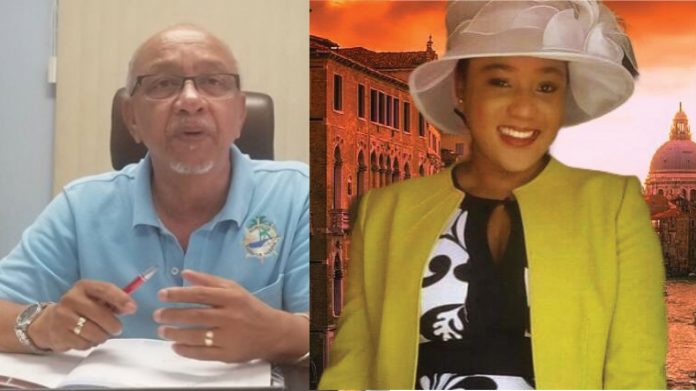
By Theresa Goodwin
Hundreds of migrants who have made Antigua and Barbuda their home are preparing to regularise their status in the country, making it easier for them to become eligible for citizenship.
This will be facilitated through the amnesty period which is being offered by the government from March 1 to April 30.
During this time, eligible applicants who have resided in the country continuously for four years or more, but who have not yet completed seven years, will be placed on a clearer path to be approved for residency, while people who have passed the seven-year mark will be cleared for citizenship.
Since the programme was announced, consulates across Antigua have been sending out appeals and WhatsApp blasts to non-nationals living here to get their documents in order, and apply for additional ones, to support their application.
Honorary Consul for Guyana Robert “Bobby” Reis said over the past few weeks his department has worked to process passport and birth certificate applications and other related documents.
“We have been preparing the Guyanese community for the last two to three weeks and we are getting our Guyanese community ready for it,” he told Observer.
He pointed out that the upcoming amnesty is not for non-nationals who are just arriving in Antigua and Barbuda, but for those who have lived in the country for several years and were not able to keep up with the immigration requirements.
He said some have lived in Antigua and have had children and grandchildren who have never travelled outside the state.
“I recall having a conversation back in the 1980s with Sir VC Bird and I asked him, how is it that Antigua has this open-door policy in terms of Caribbean nationals.
“He said to me, we all came on the same slave ship, they dropped some in the Bahamas, some in Jamaica and we are all one family,” Reis said.
He added, “I have never forgotten that conversation I had and I think all of us should be proud of Antigua and Barbuda for that kind of policy. If we are doing well economically, let our brothers and sisters from the Caribbean, let us all be one.”
The team from the Jamaican Consulate in Antigua is also working to mobilise the Jamaican community.
Honorary Consul Dr Onika Campbell is urging Jamaicans to visit the office on Factory Road to check they have the relevant documents and are fully aware of the process.
She told Observer yesterday that the recently announced immigration amnesty has sent a strong signal of regional integration and acceptance, adding that the Jamaican community is grateful for the opportunity to regularise their status.
She said a legal status will give Jamaican natives the opportunity to contribute to the economic development of Antigua and Barbuda.
“Immigrants have made innumerable contributions to the Antiguan business community and society. Though some argue that increased take-up of social programmes would generate a substantial financial cost to the government, the productivity of the newly-legalised residents will likely increase,” Dr Campbell said.
Antigua and Barbuda has a huge Guyanese, Jamaican and Hispanic population. The Honorary Consul for the Dominican Republic is currently out of the country and was not able to comment.
Successive administrations have offered amnesties over the years to allow for undocumented immigrants to be regularised.
On Tuesday, Immigration Minister EP Chet Greene called on all eligible migrants residing in Antigua and Barbuda to come forward and “settle their status without fear”.
“Migrants can become residents or citizens as their years of living here provides, and the nation, in turn, will benefit from their skills, their services, and their financial contributions to our schemes for social security, medical benefits and education,” he noted.
Greene also noted that most migrants have lived in the country “for a long time”, that they work hard, support their families and often worship at the same churches, among other things that come with being part of local society.
He confirmed that the amnesty is open to migrants from all countries.
